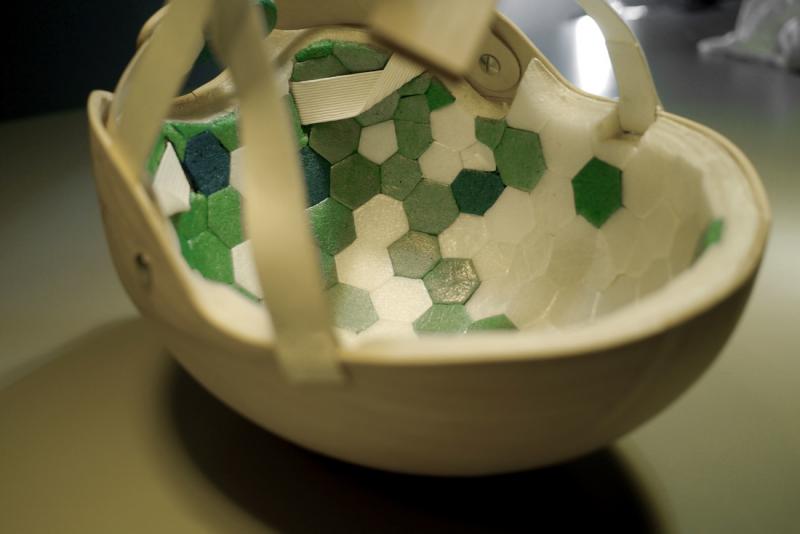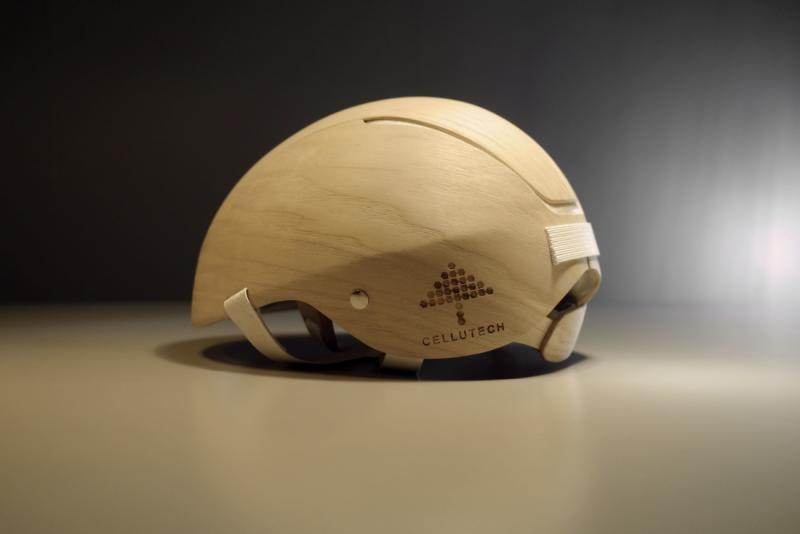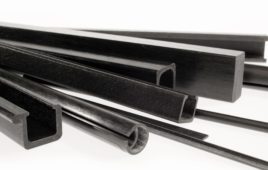
(Image courtesy of Cellutech)
Polystyrene, the petroleum-based material used to make Styrofoam and similar products, is beginning to wear out its welcome, as evidenced by a growing list of cities banning the substance.
Expanding polystyrene foam — despite the fact that it’s a dangerous, non-recyclable pollutant — is widely used in everything from take-out boxes to bicycle helmets.
But one company has engineered a new, more eco-friendly replacement. Swedish company Cellutech, in collaboration with designer Ramus Malbert, the Royal Institute of Technology and the Wallenberg Wood Science Center, has designed a new bicycle helmet entirely out of wood.
The hard protective shell is visibly wooden, and the chin strap is durable paper. But its interior cushioning is what is most impressive. The green and white hexagonal segments are made from the nanocelluose in wood pulp. Cellutech has dubbed the material Cellufoam.

(Image courtesy of Cellutech)
“We have shown that with new innovations and good cooperation with university research, it is possible to use forest raw materials to produce foam materials, and that is something we are very proud of,” says Asa Ek, Cellutech’s development manager.
Because the foam is made out of wood, it’s renewable and biodegradable — two things that petroleum, and thus polystyrene, are not.
Future uses for the sustainable lightweight foam are wide-ranging, including packaging materials, absorbent products and construction. With surface treatments and further experiments, the foam could even become a flame-retardant, antibacterial or water-filtering material.
“The collaboration with Cellutech makes it possible to commercialize the new materials we develop within WWSC and bring them closer to the market,” says Royal Institute of Technology professor Lars Waberg.
Do you think we need to start engineering more eco-friendly polystyrene replacements? What potential issues do you see with wood as an alternative? Comment below or tweet @MNetKatie
Filed Under: Materials • advanced




